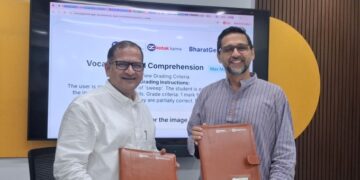The West Bengal teacher recruitment scam, which has caused major upheaval in the state’s education sector for several years—affecting thousands of educators and students—has now taken a significant turn. As legal proceedings continue, the state government has unveiled a massive recruitment initiative aimed at restoring normalcy and filling vacant positions.
In compliance with the Supreme Court’s directives and to address the vacancies created by the annulled appointments, Chief Minister Mamata Banerjee announced on May 27 that the government will release a fresh teacher recruitment notification by May 31. The new drive aims to fill 24,203 existing vacancies and create an additional 20,000 posts, totaling 44,203 positions—marking the largest such recruitment campaign in West Bengal’s history. The government has also proposed age relaxation for candidates whose earlier appointments were invalidated.
The Supreme Court has instructed the West Bengal government and the School Service Commission (WBSSC) to publish recruitment advertisements by May 31, 2025, and to complete the selection process by December 31, 2025. The court stressed the need for transparency and strict corrective measures in the recruitment process to prevent further irregularities.
The scam originally came to light following major discrepancies in the recruitment process initiated in 2016 by the West Bengal SLST (State Level Selection Test) to appoint assistant teachers (for Classes 9–12), along with Group C and D staff. Allegations of manipulation and favoritism surfaced after it was revealed that several candidates had secured jobs despite not being on the official merit list.
Responding to a series of petitions, the Calcutta High Court, in April 2024, declared the entire 2016 SLST recruitment process null and void and canceled over 25,000 appointments. It also directed the WBSSC to conduct fresh recruitments and ordered that individuals who had obtained their posts fraudulently return all salaries and benefits.
The West Bengal Board of Primary Education (WBBPE) challenged the ruling, contending that the 2016 recruitment process was untainted and that the allegations of corruption pertained to earlier cycles—namely those of 2014 and 2020. Investigations by the Central Bureau of Investigation (CBI) and the Enforcement Directorate (ED) have been ongoing and have exposed multiple layers of alleged corruption and procedural malpractice.
In a major relief to many, the Supreme Court, on May 7, 2024, stayed the Calcutta High Court’s April 22 order invalidating the appointments of approximately 25,753 teachers and non-teaching staff. The Court noted that it would be unjust to nullify all appointments without distinguishing between tainted and untainted candidates. However, it upheld that anyone found to have secured a position illegally must refund the full amount of salary and benefits received.
This fresh recruitment drive, backed by judicial oversight, is being seen as a crucial step toward restoring fairness, accountability, and stability in West Bengal’s public education system.













